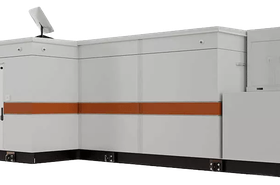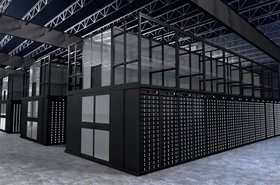The Federal Energy Regulatory Commission (FERC) has upheld its decision to block a revised Interconnection Service Agreement (ISA) that would have increased power usage at an Amazon Web Services (AWS) data center colocated next to the Talen Energy operated Susquehanna nuclear plant in Pennsylvania.
FERC ruled that it would not reconsider the decision to reject the revised ISA, following a rehearing request made by Talen Energy last November.
The FERC commissioners voted along the same lines as previously, with Mark Christie and Lindsay See in support and Willie Phillips dissenting.
FERC originally rejected the ISA last October. In that ruling, FERC members determined that the ISA had the potential to raise public power bills and affect the grid's reliability.
The agreement would have supported an expanded colocated load at an AWS data center connected to the 2.5GW plant in Pennsylvania, enabling it to serve the data center behind the meter.
The proposal aimed to revise an ISA involving PJM, the regional grid operator; Susquehanna Nuclear, which owns the power plant; and transmission owner PPL Corp. The amendment would have boosted the data center's shared power demand from 300MW to 480MW.
FERC initially accepted a PJM-filed ISA in 2015, which was amended in February 2023 to add 150MW of colocated load. However, following AWS' acquisition of the 960MW Cumulus data center from Talen Energy, FERC rejected a further amendment submitted in June and updated in September to increase the load capacity.
In response to the decision, Talen, who separately requested a US appeals court to make a ruling on the rejection, told Reuters that it was not surprised by the decision.
"The ruling now allows us to pursue our appeal rights on the merits in the Fifth Circuit," Talen spokesperson Taryne Williams said.
The decision is not expected to impact an upcoming review on future colocation agreements between power plants and data centers.
The review was proposed by then Chairman of FERC, Phillips, who contended that it was needed to “address thoughtfully and comprehensively to accommodate what will be a host of colocation requests that are headed our way, including jurisdiction, wholesale grid services, reliability, and resource adequacy.”







